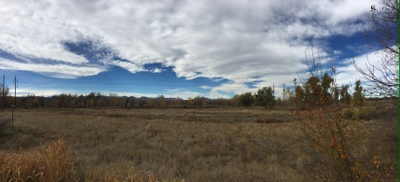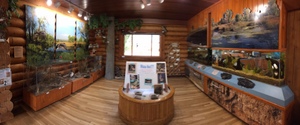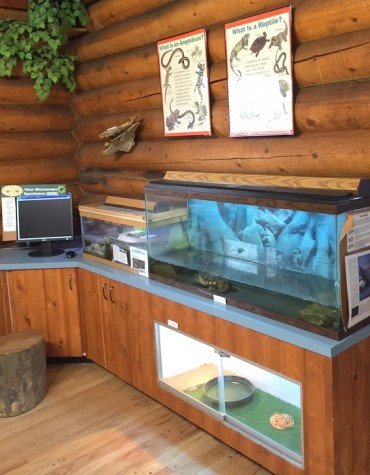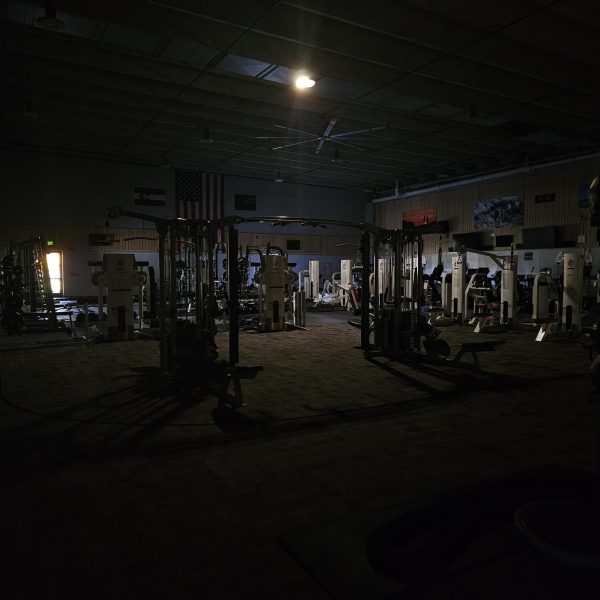Nature beckons for all seasons at nearby South Platte Park and Carson Nature Center

Image via Anthony Shaw
South Platte Park, Littleton.
If you’re someone who wants to become more in touch with nature, wait no longer.
South Platte Park Carson Nature Center is within a stone’s throw from ACC’s Littleton campus, and it provides visitors with 880 acres of pristine landscape.
Its mission is to help people find meaning and value in natural open space through direct positive experiences.
“There’s a lot of value in protecting nature right near where people are,” said Skot Latona, park supervisor.

The Nature Center offers many exhibits.
“In the mountains you have these wonderful parks and people come visit them for a short time, whereas, at this park they can come anytime,” Latona said. He has been an employee of the park for 18 years.
Anytime of the year is good for visiting the park, he says.
“I like every season, it’s kind of a cop-out but from the fall colors, you get a nice frost or snow out here it’s amazing. The ducks are everywhere and there are no people,” he said.
“The wildlife is a lot more active in the winter. In the spring everyone gets there bikes out. Mid-summer there’s birds absolutely everywhere and it’s noisy with bird calls,” Latona said. “There’s never a bad time to come here.”
The park was created in 1965 after a flood essentially put everything in the park’s boundaries underwater. Larry Borger, then city manager of Littleton, developed the idea to preserve the flood plain and turn it into a park for the public, rather than waste more money channelizing the land for home developments along the South Platte River.
Two entrances provide access to Littleton’s hidden outdoor gem. The first is right off the Platte Canyon exit on C-470 and the second is behind the Aspen Grove shopping center.
The center is the park’s headquarters, and it’s equipped with interpretive guides and volunteers. The park receives contributions from roughly 120 devoted volunteers. Volunteer opportunities vary from digging up obnoxious tree roots to leading school field trips. South Platte Park welcomes anyone who’s interested in volunteering.

The Nature Center offers an education for all ages.
The National Association for Interpretation comes twice a year to the center to educate people interested in becoming interpretive guides. They teach anyone how to build programs that are fun and engaging, the psychology of communication and how to talk to people – basically the art of entertainment through nature. The interpreters lead exhibit tours, help with live animals, provide trail information and assist with display projects.
The flora is home-grown, literally.
The park does its best to restore the native ecosystem. Natural Resource Assistance staffers eliminate all European plants because they’re immune to the native plants’ predators and destroy the native landscape. Wildlife gardeners are responsible for maintaining the native wildflower gardens around the center.
Program leaders are educated to lead small groups on trails and help participants notice and understand nature.
Plenty of wildlife – such as migratory breeding birds – can be seen. In the winter, the park hosts ducks, geese and about 22 different types of water fowl. Bird surveyors’ tasks include long-term studies to determine which species stay here during the different seasons. The South Platte River runs through the park, and five lakes are stocked with a myriad of different species of fish.
So if anyone’s seeking new volunteer opportunities or simply tired of the same jogging trail, the answer could be very close to ACC.
It’s easy to fall in love with the serene landscape and feel at one with nature.







